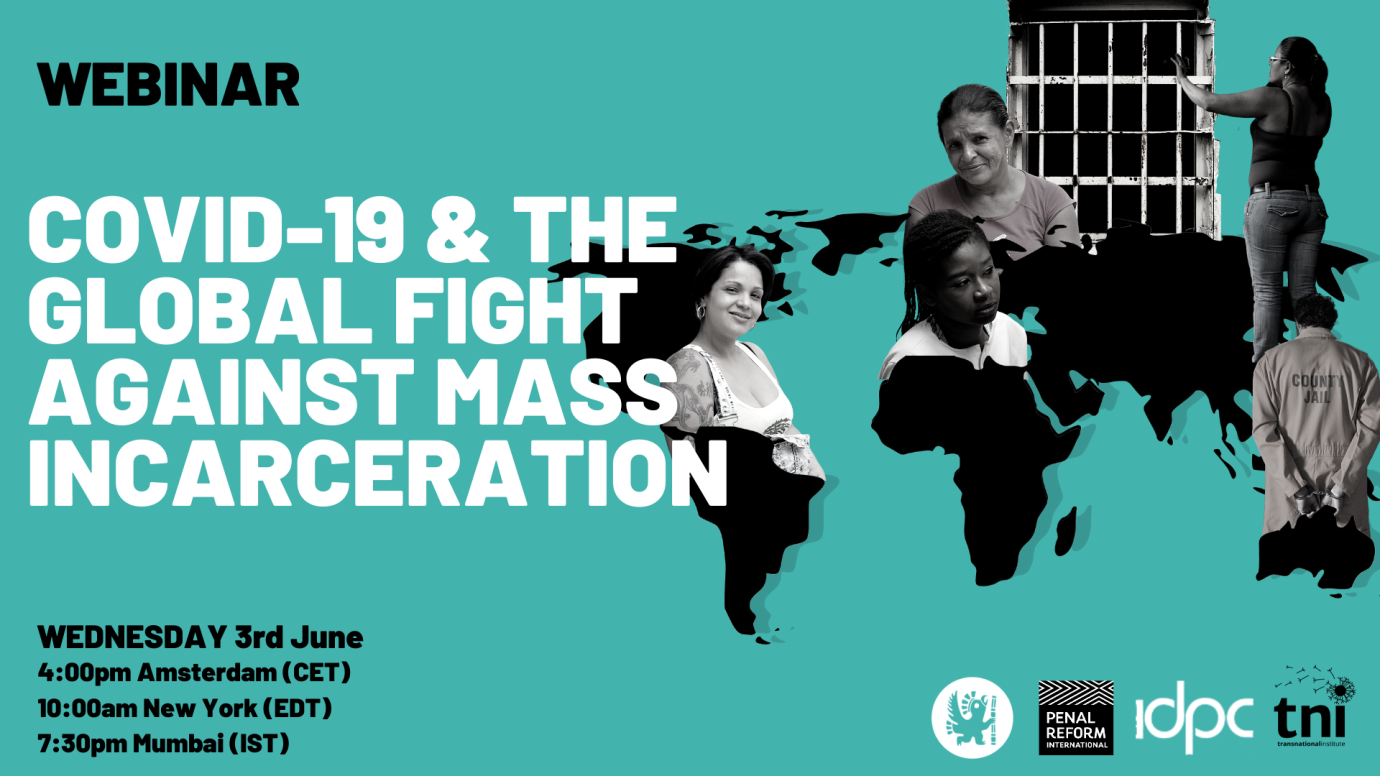|
Join TNI's Wednesday webinar on June 3:
COVID-19 and the global fight against mass incarceration.
Dear reader,
The COVID-19 pandemic has led governments to release an unprecedented number of people from prison and curb new admissions to prevent deadly outbreaks in prisons and other detention centres. The pandemic has exposed the societal costs of mass incarceration, while the quick actions taken by governments showed that most of those released should not have been imprisoned in the first place. This includes people charged or convicted with drug-related offences, who have been included in the groups released in a number of countries.
|

|
We are proud to announce that together with the International Drug Policy Consortium (IDPC), Washington Office on Latin America (WOLA), and Penal Reform International (PRI) we will be co-hosting a webinar on COVID-19 and decarceration. Register to receive more details.
This webinar, taking place on 3 June at 16.00 CEST (09.00 Bogotá / 21.00 Bangkok), will cast a look at the drivers of mass incarceration worldwide, sharing analysis on the impact of COVID-19, the negative impacts of imprisonment exposed by the pandemic, and the challenges and opportunities it provides for sustainable reform. It will particularly focus on the role of punitive drug policies in driving prison numbers up.
Global trends show that 1 in 5 people in prison are incarcerated for drug offences – constituting around 2 million people. Half a million of them are serving sentences for drug possession for personal use. Punitive drug policies also disproportionately impact the impoverished and the most marginalised people in our societies.
Activists and researchers from different regions will discuss and share strategies by civil society to reverse this long-standing trend of mass incarceration as a response to crime. What strategies for action have been effective during this pandemic? What drug policies need to change in order to address high levels of incarceration? How can we ensure that short-term prison releases mark a shift towards long-term structural reform and an end to mass incarceration?
4pm CET, 3 June 2020
|
|
|
(French and Spanish interpretation will be available)
Panellists:
-
Olivia Rope
, Director of Policy and International Advocacy, Penal Reform International
-
Isabel Pereira
, Principal investigator at the Center for the Study of Law, Justice & Society (Dejusticia),Colombia
-
Sabrina Mahtani
from Advocaid Sierra Leone
- Final speakers to be confirmed shortly
The webinar is organised by the
Transnational Institute
and co-sponsored by
IDPC
,
WOLA
and
Penal Reform International
|
|
|
|
|
|
|
|
Formed in 1996, the TNI Drugs & Democracy programme explores the underlying causes of drug production and consumption and advocates for evidence-based policies that respect the human rights of producers and consumers. |
|
|
|
| |
|
|
| | | | |